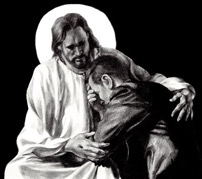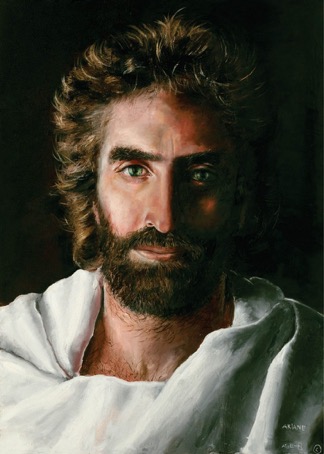
Every parent, the Pope pointed out, knows how challenging it is to help their children to grow in freedom and responsibility.
But, because of sin, freedom becomes a pretension of autonomy and pride leads to opposition and to the illusion of self-sufficiency.”
Francis added how God understands this experience firsthand, as we see in the Scriptures, where he laments how His children sin and are disobedient.
Although wounded, God lets love speak, and He appeals to the conscience of these degenerate children so that they will repent and allow themselves to be loved again. This is what God does! He comes to us so that we will let ourselves be loved by Him, by our God.”
In his mercy, he asks them to turn back to him with all their hearts and to receive a righteousness that is itself his gift.
God never disowns us, we are His people, the most evil of men, the most evil of women, the most evil of peoples are His children. And God is like this: He never, never, disowns us! He always says: “Son, daughter, come.” And this is our Father’s love; this is God’s mercy.”
And this is the way of divine mercy: God does not treat us according to our faults.
Pope Francis concluded, praying that all people this Holy Year be open to God’s merciful invitation to come back to him and to experience His miraculous love and forgiveness.
But, because of sin, freedom becomes a pretension of autonomy and pride leads to opposition and to the illusion of self-sufficiency.”
Francis added how God understands this experience firsthand, as we see in the Scriptures, where he laments how His children sin and are disobedient.
Although wounded, God lets love speak, and He appeals to the conscience of these degenerate children so that they will repent and allow themselves to be loved again. This is what God does! He comes to us so that we will let ourselves be loved by Him, by our God.”
In his mercy, he asks them to turn back to him with all their hearts and to receive a righteousness that is itself his gift.
God never disowns us, we are His people, the most evil of men, the most evil of women, the most evil of peoples are His children. And God is like this: He never, never, disowns us! He always says: “Son, daughter, come.” And this is our Father’s love; this is God’s mercy.”
And this is the way of divine mercy: God does not treat us according to our faults.
Pope Francis concluded, praying that all people this Holy Year be open to God’s merciful invitation to come back to him and to experience His miraculous love and forgiveness.

Pope Francis: Be courageous, go to confession
Trusting in God's infinite mercy, people should not be afraid or embarrassed to go to confession, Pope Francis said.
"There are people who are afraid to go to confession, forgetting that they will not encounter a severe judge there, but the immensely merciful Father,"
"When we go to confession, we feel a bit ashamed. That happens to all of us, but we must remember that this shame is a grace that prepares us for the embrace
of the Father, who always forgives and always forgives everything."
To go to Confession, he said, is to encounter the love of Jesus with sincerity of heart and with the transparency of children, not refusing, but even welcoming the “grace of shame” that makes us perceive God’s forgiveness.
Trusting in God's infinite mercy, people should not be afraid or embarrassed to go to confession, Pope Francis said.
"There are people who are afraid to go to confession, forgetting that they will not encounter a severe judge there, but the immensely merciful Father,"
"When we go to confession, we feel a bit ashamed. That happens to all of us, but we must remember that this shame is a grace that prepares us for the embrace
of the Father, who always forgives and always forgives everything."
To go to Confession, he said, is to encounter the love of Jesus with sincerity of heart and with the transparency of children, not refusing, but even welcoming the “grace of shame” that makes us perceive God’s forgiveness.

For many believing adults, confessing to a priest is an unbearable effort – that often leads one to avoid the Sacrament – or such a painful process that it transforms the moment of truth into an exercise of fiction. Pope Francis, commenting on the Letter to the Romans, says that Saint Paul does exactly the opposite: he admits publically to the community that “good does not dwell in me, that is, in my flesh.” He acknowledges that he is a “slave” who does not do the good that he wants to do, but the evil that he does not want to do. This happens in the life of faith, the Pope said, that “when I want to do good, evil is close to me”.

“This is the struggle of Christians. It is our struggle every day. And we do not always have the courage to speak as Paul spoke about this struggle. We always seek a way of justification: ‘But yes, we are all sinners.’ But we say it like that, don’t we? This says it dramatically: it is our struggle. And if we don’t recognize this, we will never be able to have God’s forgiveness. Because if being a sinner is a word, a way of speaking, a manner of speaking, we have no need of God’s forgiveness. But if it is a reality that makes us slaves, we need this interior liberation of the Lord, of that force. But more important here is that, to find the way out, Paul confesses his sin to the community, his tendency to sin. He doesn’t hide it.”

Some say: ‘Ah, I confess to God.’ But it’s easy, it’s like confessing by email, no? God is far away, I say things and there’s no face-to-face, no eye-to-eye contact. Paul confesses his weakness to the brethren face-to-face. Others [say], ‘No, I go to confession,’ but they confess so many ethereal things, so many up-in-the-air things, that they don’t have anything concrete. And that’s the same as not doing it. Confessing our sins is not going to a psychiatrist, or to a torture chamber: it’s saying to the Lord, ‘Lord, I am a sinner,’ but saying it through the brother, because this says it concretely. ‘I am sinner because of this, that and the other thing.’”
Concreteness and honesty, Pope Francis added, and a sincere ability to be ashamed of one’s mistakes. There are no shadowy lanes that can serve as an alternative to the open road that leads to God’s forgiveness, to the awareness, in the depths of the heart, of His forgiveness and His love.
And here the Pope explained we must imitate little children:
“Little children have that wisdom: when a child comes to confess, he never says something general. ‘But father, I did this and I did that to my aunt, another time I said this word’ and they say the word. But they are concrete, eh? They have that simplicity of the truth. And we always have the tendency to hide the reality of our failings. But there is something beautiful: when we confess our sins as they are in the presence of God, we always feel that grace of shame. Being ashamed in the sight of God is a grace. It is a grace: ‘I am ashamed of myself.’ We think of Peter when, after the miracle of Jesus on the lake, [he said] ‘Depart from me, Lord, for I am a sinner.’ He is ashamed of his sins in the presence of the sanctity of Jesus.”
Concreteness and honesty, Pope Francis added, and a sincere ability to be ashamed of one’s mistakes. There are no shadowy lanes that can serve as an alternative to the open road that leads to God’s forgiveness, to the awareness, in the depths of the heart, of His forgiveness and His love.
And here the Pope explained we must imitate little children:
“Little children have that wisdom: when a child comes to confess, he never says something general. ‘But father, I did this and I did that to my aunt, another time I said this word’ and they say the word. But they are concrete, eh? They have that simplicity of the truth. And we always have the tendency to hide the reality of our failings. But there is something beautiful: when we confess our sins as they are in the presence of God, we always feel that grace of shame. Being ashamed in the sight of God is a grace. It is a grace: ‘I am ashamed of myself.’ We think of Peter when, after the miracle of Jesus on the lake, [he said] ‘Depart from me, Lord, for I am a sinner.’ He is ashamed of his sins in the presence of the sanctity of Jesus.”
References:
- Vatican Radio (2015, October 25)
- Pope Francis: confess sins with concreteness and sincerity. Retrieved from www.news.va/en/news/pope-francis-confess-sins-with-concreteness-and-si
- Lenartowick, K. (2014, February 19). Pope Francis: Be courageous, go to confession. Retrieved from www.catholicnewsagency.com/news/pope-be-courageous-go-to-confession/


 RSS Feed
RSS Feed